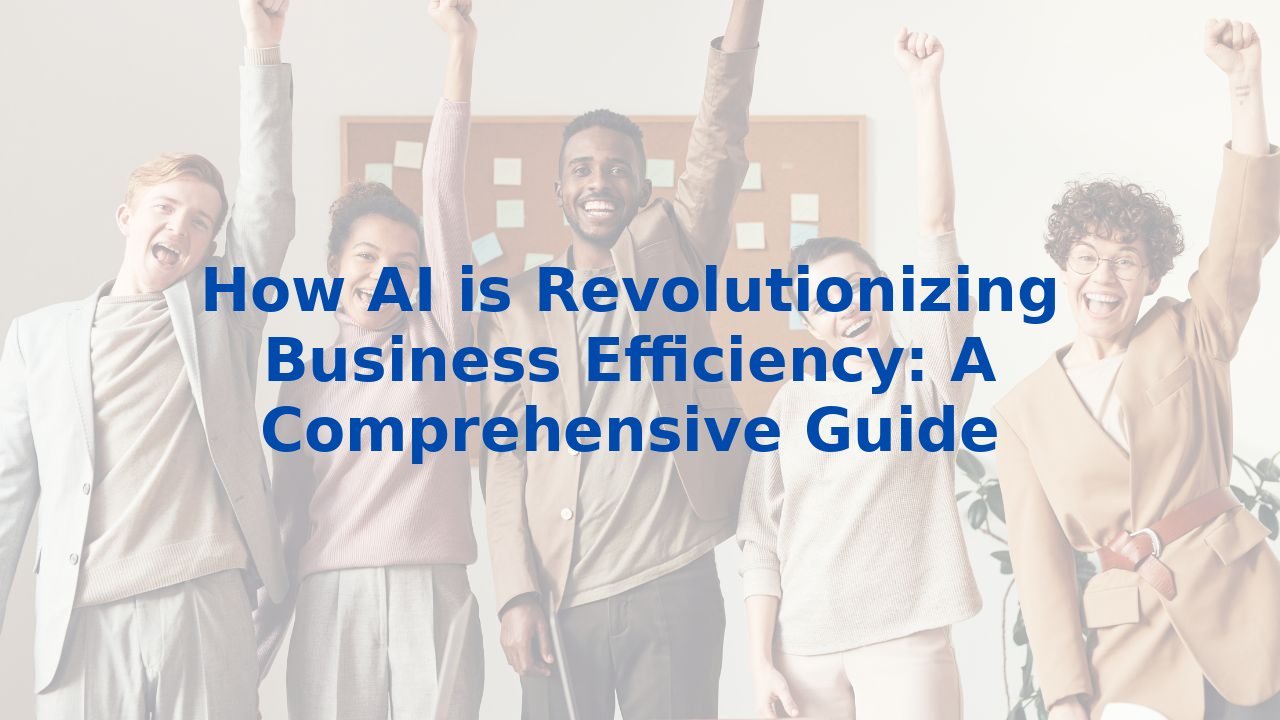How AI Is Revolutionizing Business Efficiency: A Comprehensive Guide
The Future of Efficiency: How AI Enhances Business Processes
In an ever-evolving business landscape, the quest for efficiency is relentless. Organizations strive not just to survive, but to thrive—and artificial intelligence (AI) has emerged as a vital catalyst in this journey. The integration of AI into various business processes is reshaping how companies operate, enabling them to enhance performance and gain a competitive edge. This guide will explore how AI can significantly augment essential business processes, the benefits it offers in improving efficiency, and the importance of equipping employees with the skills to leverage these advanced tools effectively.
Enhancing Business Processes with AI
AI can revolutionize several key business processes, transforming how tasks are performed and decisions are made. Here are some vital areas where AI shines:
- Data Analysis and Decision Making: AI systems can sift through massive data sets at lightning speed, delivering insights that might elude even the most skilled human analysts. By providing actionable intelligence, businesses are empowered to make informed decisions that optimize resources and streamline operations.
- Customer Service: AI-driven chatbots and virtual assistants have changed the game, providing immediate responses to customer inquiries around the clock. This not only alleviates the burden on human customer service representatives but also significantly enhances response times and customer satisfaction.
- Marketing and Sales: Personalization is key in today’s market. AI enables targeted marketing campaigns by analyzing customer behavior, predicting trends, and automating repetitive tasks like email outreach and lead generation, allowing sales teams to focus on closing deals.
- Supply Chain Management: AI optimizes supply chain dynamics by accurately predicting demand, managing inventory, and streamlining logistics. This leads to cost reduction and improved delivery timelines, enhancing the overall operational efficiency.
- Financial Management: AI automates financial processes such as bookkeeping, invoicing, and reporting. Moreover, its ability to detect anomalies in transactions helps organizations mitigate fraud risks and ensures compliance.
Benefits of AI for Improving Efficiency
The integration of AI into business processes yields numerous advantages that collectively contribute to enhanced efficiency:
- Increased Productivity: By automating mundane and repetitive tasks, AI liberates valuable human resources, allowing them to engage in more strategic, creative, and impactful endeavors.
- Enhanced Accuracy: Machine learning systems are designed to reduce error margins, ensuring that critical tasks are executed with higher precision and reliability than their human counterparts.
- Improved Customer Experience: With AI tools, businesses can offer tailored experiences, building stronger relationships with customers and fostering loyalty.
- Cost Savings: Automation leads to a notable reduction in labor costs, allowing organizations to allocate their budgets more effectively.
The Importance of Training Employees for AI
Despite the transformative power of AI, its potential can only be harnessed fully if employees are adequately trained. Here’s why training is pivotal:
- Understanding AI Capabilities: Employees must grasp the strengths and limitations of AI tools to effectively incorporate them into their daily workflows.
- Effective Use of Tools: Training programs teach employees how to construct meaningful queries and refine strategies for better results from AI applications.
- Evaluating Output: A critical eye is necessary. Employees trained in AI can assess outputs for accuracy and relevance, ensuring that decisions are based on reliable information.
- Ethical Use: Education should also cover ethical considerations related to AI, including issues of privacy, data ownership, and transparency.
Investing in comprehensive AI literacy within the workforce is, therefore, a strategic move. By equipping employees with the skills to navigate this transformative landscape, organizations not only ensure smoother integration of AI tools but also foster an environment ripe for innovation and growth.
Conclusion
AI is not merely a trend; it's a pioneering force reshaping business operations and elevating efficiency across various domains. The success of AI adoption hinges on effective integration and employee preparedness. As companies focus on AI literacy and skill-building, they unlock significant advantages—leading to improved performance, enhanced customer relationships, and a fortified position in today’s competitive marketplace. The future is not just about embracing AI; it’s about empowering your team to drive that change.



